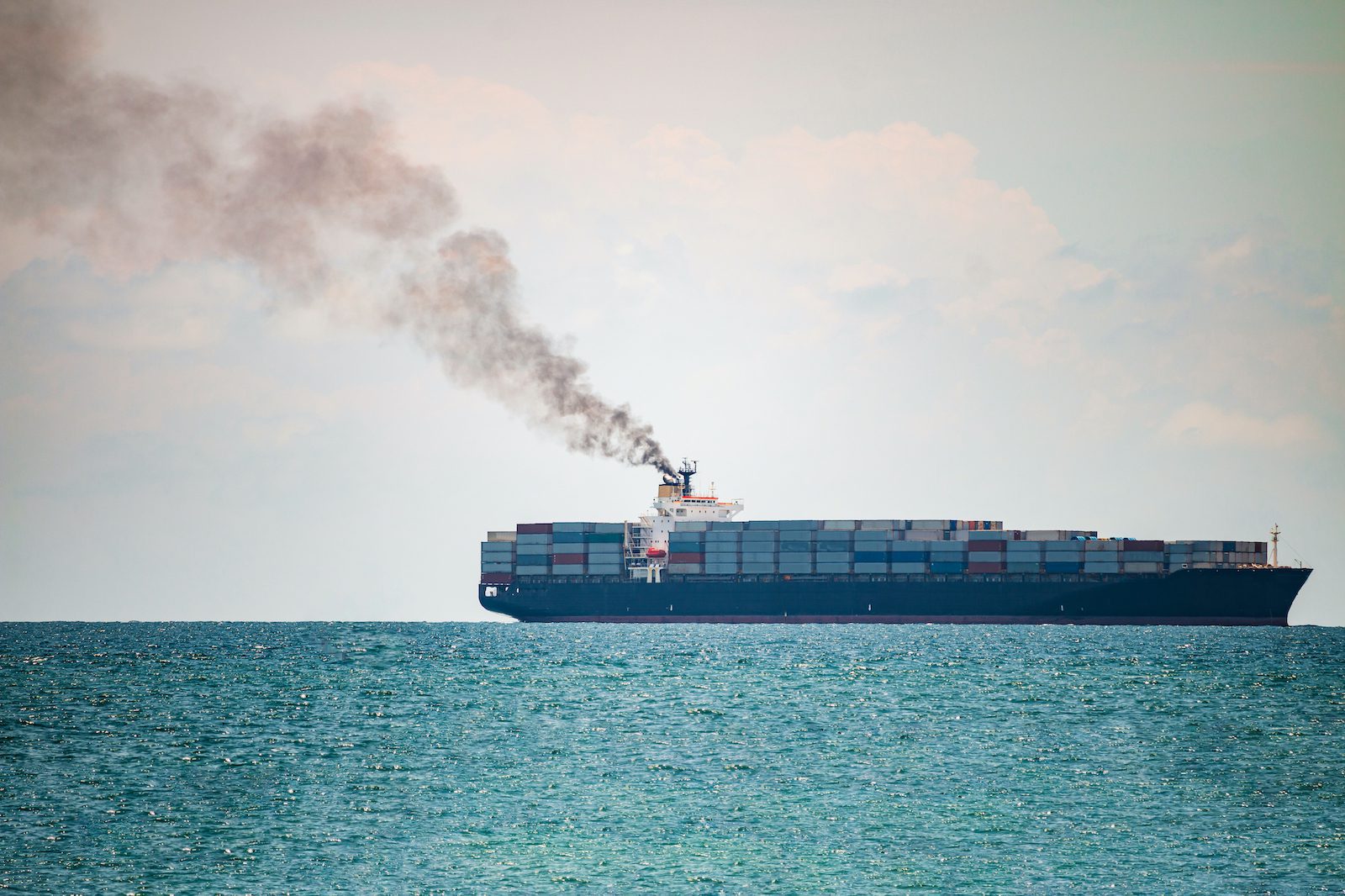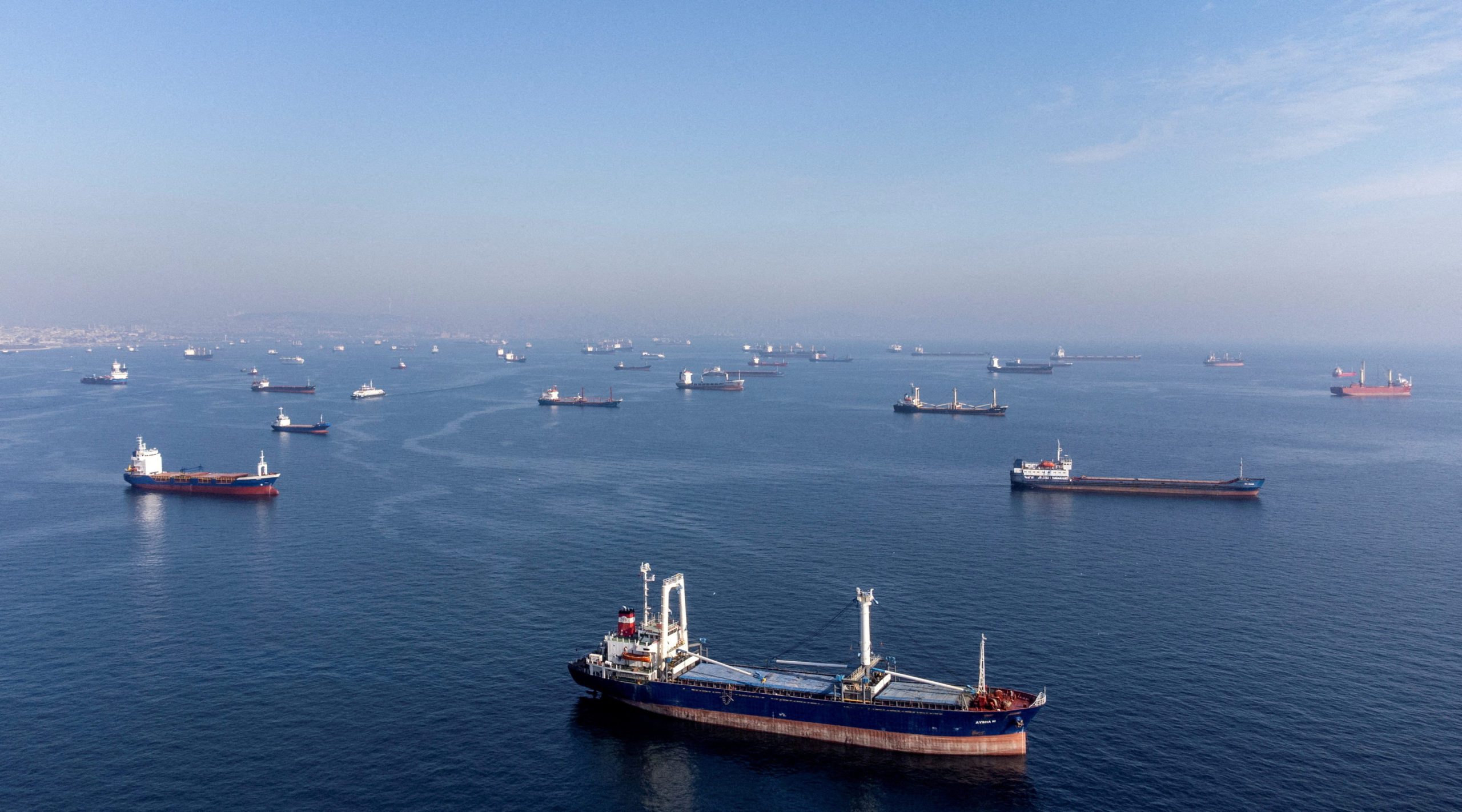By Jonathan Saul
LONDON, July 7 (Reuters) – Countries on Friday adopted a revised greenhouse gas (GHG) strategy for shipping that sets a net zero emissions target by around the middle of the century, prompting environmental groups to say it was nowhere near ambitious enough.
After days of discussions in London at U.N. shipping agency the International Maritime Organization’s (IMO) headquarters, member countries agreed to reach net zero “by or around, i.e., close to 2050, taking into account different national circumstances.”
IMO Secretary-General Kitack Lim said the unanimous support from all 175 member states was “particularly meaningful” and that the deal opened “a new chapter towards maritime decarbonisation.”
Shipping, which transports around 90% of world trade and accounts for nearly 3% of the world’s carbon dioxide emissions, has faced calls from environmentalists and investors to deliver more concrete action, including a carbon levy.
IMO’s Revised GHG Strategy for Shipping: Details and Reactions
But despite various proposals for a global shipping levy, including ones from European Union countries and separately Pacific nations, the strategy’s text only pointed to measures including “an economic element, on the basis of a maritime GHG emissions pricing mechanism,” whose details would be worked on over the next year.
Countries also agreed to “indicative checkpoints” to reduce the total annual GHG emissions from international shipping by at least 20%, striving for 30% by 2030, compared with 2008, and to reduce the total annual GHG emissions by at least 70%, striving for 80% by 2040, compared with 2008.
Ralph Regenvanu, climate minister for the low lying South Pacific nation of Vanuatu, said the outcome was “far from perfect” but gave the world “a shot at 1.5C.”
He said a GHG levy was the only way to keep emissions below that limit, which scientists say is needed to prevent the most devastating consequences of global warming.
The 2015 Paris agreement, which sought to strengthen the global response to climate change, reaffirmed the goal of limiting global temperature increase to well below 2 degrees Celsius, while pursuing efforts to limit the increase to 1.5 degrees.
The IMO delegation to the world’s biggest polluter China, said the adoption of the strategy was a milestone.
China had pointed to “unrealistic visions and levels of ambition” to reaching zero GHG by 2050 at the latest, according to a diplomatic note made public this week.
Harjeet Singh of the green Climate Action Network International said the meeting had broached the critical issue of levying shipping.
“Unfortunately, the decision has been deferred, pushing this crucial financial mechanism further down the road,” he said.
John Maggs, with the environmental Clean Shipping Coalition also criticized the outcome.
“The level of ambition agreed is far short of what is needed to be sure of keeping global heating below 1.5C,” he said.
Shipping industry officials said the agreement gave them concrete targets to work with, but some also demanded a levy.
The industry “will do everything possible to achieve these goals” including the 70-80% absolute reduction of GHG emissions by 2040, Simon Bennett, Deputy Secretary General with the International Chamber of Shipping association, said.
“But this can only be achieved if IMO rapidly agrees to a global levy on ships’ GHG emissions,” he said, adding that the alternative marine fuels needed to be made more economically viable and incentives provided for their uptake.
(Reporting by Jonathan Saul, additional reporting by Simon Jessop, Editing by Mark Potter, Barbara Lewis and Ros Russell)
(c) Copyright Thomson Reuters 2023.

 Join The Club
Join The Club












